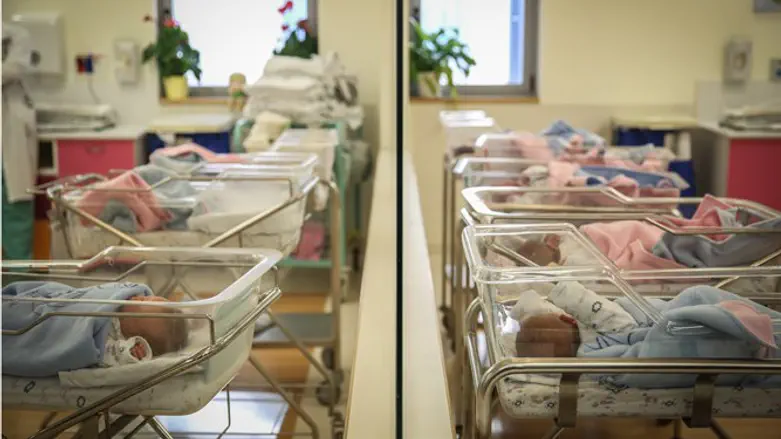
An Israeli economist warned that subsidies for large families could endanger the future of Israel’s infrastructure and economy, urging the government to cut back on spending aimed at maintaining Israel’s relatively high birthrate.
Speaking on Kan Tuesday, Prof. Omer Moav, who teaches economics at IDC Herzliya, said that Israel’s natural growth rate, one of the highest in the industrialized world, could make it difficult for Israelis to maintain their standard of living in the future.
“If we want to maintain our position, we need to expand infrastructure by 2% per year,” said Moav. “But we don’t want to just maintain our position, we want to improve it, and that will require massive investment, particularly in public transportation, in order to keep up with other developed nations.”
Moav said Israel could cut spending on subsidies for large families in order to curb the natural growth rate – in particular among haredi Jews.
“The very high birthrate, which is concentrated in certain sectors, is a very serious economic challenge which we need to address.”
“Recent studies have shown that the average haredi family gets in terms of state funding for education, healthcare, and welfare approximately 5,000 shekels ($1,535) more per month from the government than they pay in taxes.”
“That means that there is a population which is growing which is in turn increasing the burden on taxpayers.”
“We must decide whether we want to be a developed country or a poor country with lots of kids. I’m not going to argue about it. Maybe I’ll go live somewhere else.”
“Fertility isn’t just a function of culture, values, or religion – it’s also a function of incentives. The sober assessment is that we have no choice but to understand that we cannot continue to subsidize high birthrates and fund children. We need to cut the child allowance payments and most definitely end them for children after the third child.”